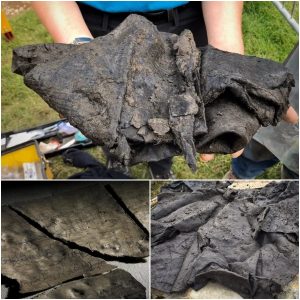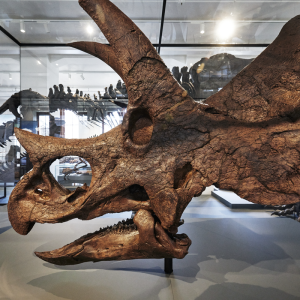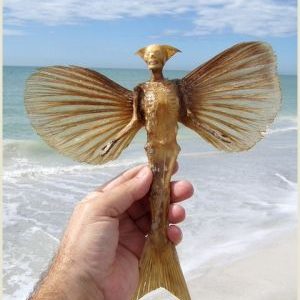The skeleton of a 300,000-year-old elephant with giant tusks has been unearthed in Germany.
The amazing ancient remains show that the creature had been killed and eaten by Stone Age hunters.

The elephant skeleton with its eight-foot tusks was found near an ancient lake. It’s almost completely intact with three legs, a lower jaw bone and ribs easily distinguishable. Around 30 small flint flakes, sharpening tools and even bit marks around it suggest it was feasted upon by hungry hunters. The creature was a species called the Eurasian straight-tusked elephant which is now extinct.

The elephant’s long tusks would have looked something like thisCredit: University of Tubingen

The skeleton was so well preserved because it was killed near an ancient lake that covered it in sedimentCredit: University of Tubingen. This type of elephant once roamed across Europe and Western Asia, during the Middle and Late Pleistocene (781,000–30,000 years before present). The recent discovery was made at a site in the German town of Schöningen.
Archaeologists previously uncovered three sabre-toothed cats skeletons and a 300,000-year-old hunting spear at the same site. The elephant skeleton seems to have been kept so well-preserved since the Middle Palaeolithic era because of the water-saturated sediment it was covered in. It was larger than today’s African elephant, weighing 6.8 tonnes and standing 10 feet tall.

The huge tusks really stick out in this imageCredit: University of Tubingen

This is according to researchers from the Senckenberg Centre for Human Evolution at the University of Tübingen, Germany, who made the discovery. They think the elephant was female and assume it was getting old as it had worn teeth. The elephant may have even died of old age rather than hunting.
Scavengers may then have eaten its flesh.
Head of the excavation, Jordi Serangeli, said: “The Stone Age hunters probably cut meat, tendons and fat from the carcass.
“We do not seek to rule out that extremely dangerous elephant hunts may have taken place, but the evidence often leaves us in some doubt.”





